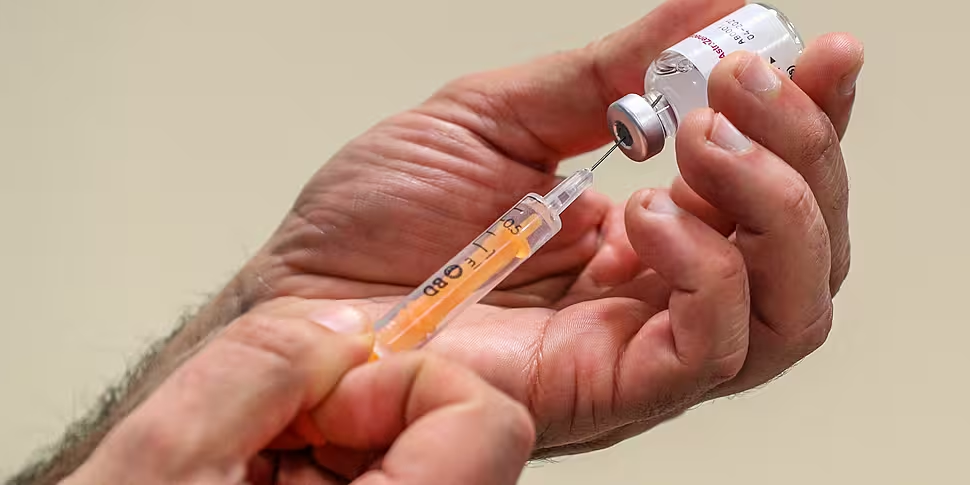The news that AstraZeneca will be cutting deliveries of the Oxford vaccine by 60% to the European Union has been described as a "real setback" by the Minister for Health.
In a tweet this afternoon, Stephen Donnelly said the pharmaceutical company will provide exact figures on supply at a meeting early next week.
AstraZeneca was expected to deliver around 80 million doses of the vaccine it developed in partnership with Oxford University to the EU by the end of March.
The company is blaming reduced production at a manufacturing site for the supply problem.
It now expects to deliver around 31 million doses to member states in February and March.
The news from AstraZeneca, which has advised the EU of a reduction in vaccine supply in Feb and March, is a real setback. The numbers are still tentative and AstraZeneca is due to provide more exact figures at a meeting early next week. Will provide an update as soon as possible.
— Stephen Donnelly (@DonnellyStephen) January 23, 2021
Darren McCaffrey, Political Editor for Euronews, told Newstalk Breakfast with Susan Keogh that EU officials have strongly criticised AstraZeneca for the shortfall in supply.
"AstraZeneca say this is due to what they call reduced yields at manufacturing sites within the European supply chain, ie they're having difficulty manufacturing it," he said.
"But this has been branded as a disgrace by one EU official, as a significant shortfall by another, simply that it is just not good enough."
Mr McCaffrey said that while the AstraZeneca vaccine hasn't been officially approved by EU regulators, the expectation is that this could happen by next Friday.
He continued: "The reason this is significant is that many countries had been quite excited for the AstraZeneca vaccine because it's much more easy to distribute, it doesn't need to be held at super-low temperatures.
"So it was part of the plans for many governments around Europe in their efforts to ramp up vaccinations, that this AstraZeneca would allow them to do so.
"I'm sure there are many countries now, including Ireland, who are now looking at those plans and potentially having to change them because they're going to get probably less than half the vaccines that they'd expected only a couple of weeks ago."
On the same programme, Professor Kingston Mills said that if the delay in supply of the AstraZeneca vaccine could potentially upset the immunisation plans in Ireland.
However, this can be offset by inoculations from other manufacturers, such as Johnson and Johnson, CureVac and Novavax.
"I'm optimistic that all three of these vaccines, or at least two, could be effective," he added.









